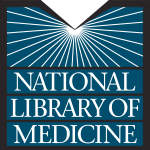- Industrie: Library & information science
- Number of terms: 152252
- Number of blossaries: 0
- Company Profile:
The National Library of Medicine (NLM), on the campus of the National Institutes of Health in Bethesda, Maryland, is the world's largest medical library. The Library collects materials and provides information and research services in all areas of biomedicine and health care.
Treatment that experts agree is appropriate, accepted, and widely used for a given disease or condition.
Industry:Health care
Two or more drugs contained in a single dosage form, such as a capsule or tablet. An example of a fixed-dose combination HIV drug is Atripla (a combination of efavirenz, emtricitabine, and tenofovir). By reducing the number of pills a person must take each day, fixed-dose combination drugs can help improve adherence to an HIV treatment regimen.
Industry:Health care
Type of immune response that is mediated by antibodies.
Industry:Health care
Type of immune response that is produced by the direct action of immune cells, such as T lymphocytes (T cells), rather than by antibodies.
Industry:Health care
Type of immune response that is produced by the direct action of immune cells, such as T lymphocytes (T cells), rather than by antibodies.
Industry:Health care
Unspecialized cells from which other types of cells develop. When a stem cell divides, each new cell has the potential either to remain a stem cell or to become a specialized cell with a distinct function, such as a muscle cell or blood cell. Stem cells serve as a repair system for the body, replacing old and damaged cells. Research on using stem cells to treat various diseases is currently under way.
Industry:Health care
Use of chemicals to treat a disease. Although chemotherapy is used to describe any therapy involving the use of chemical-based agents, most often it refers to the use of chemical-based agents to treat cancer.
Industry:Health care
Use of immunologic agents such as antibodies, growth factors, and vaccines to modify (activate, enhance, or suppress) the immune system in order to treat disease. Immunotherapy is also used to diminish adverse effects caused by some cancer treatments or to prevent rejection of a transplanted organ or tissue.
Industry:Health care
Use of immunologic agents such as antibodies, growth factors, and vaccines to modify (activate, enhance, or suppress) the immune system in order to treat disease. Immunotherapy is also used to diminish adverse effects caused by some cancer treatments or to prevent rejection of a transplanted organ or tissue.
Industry:Health care
